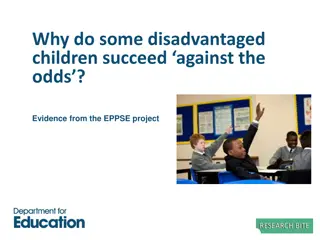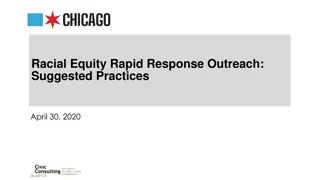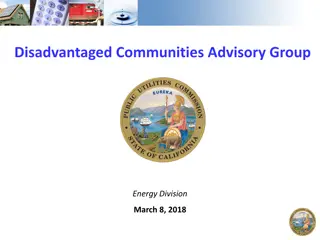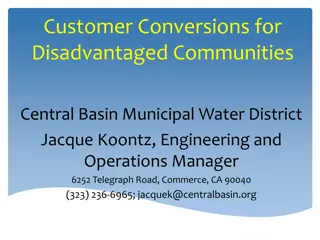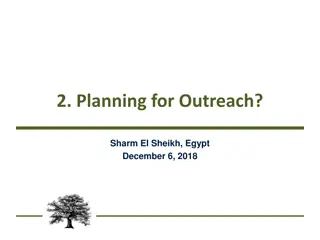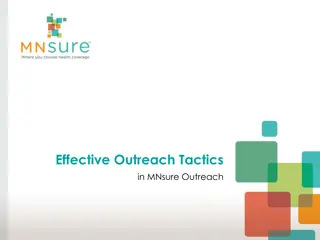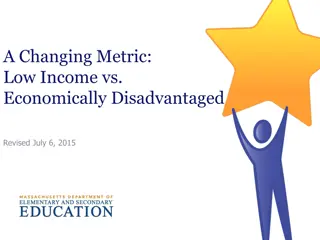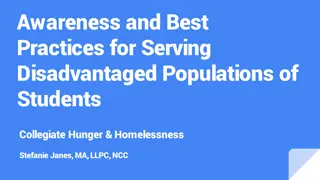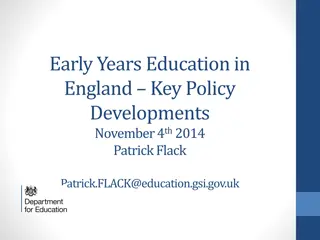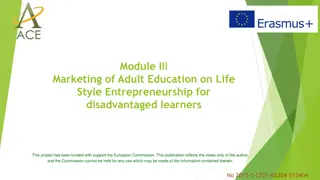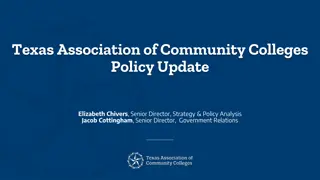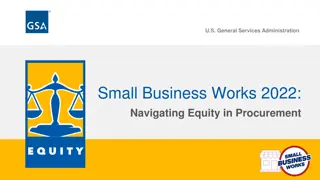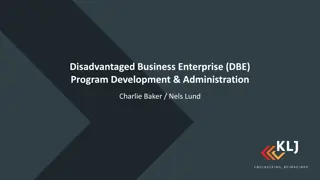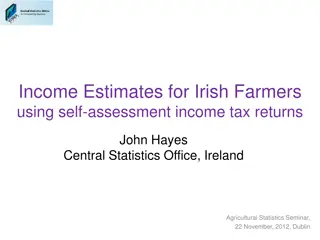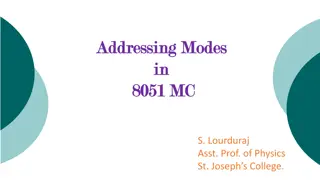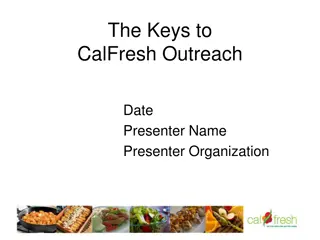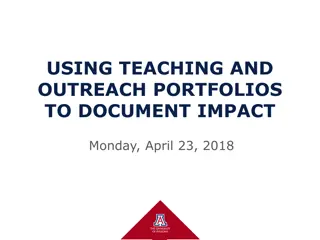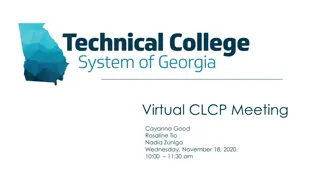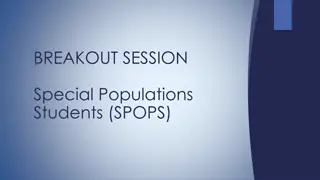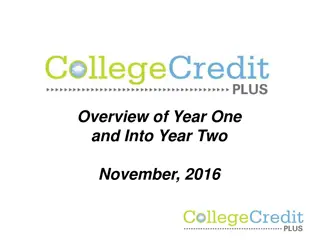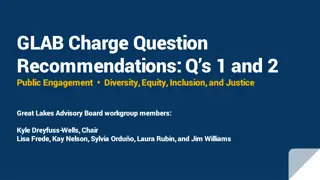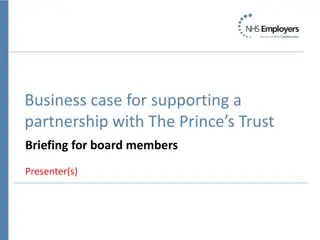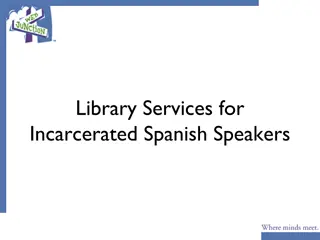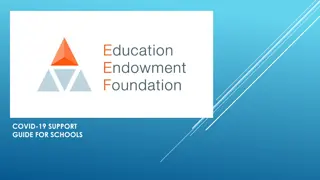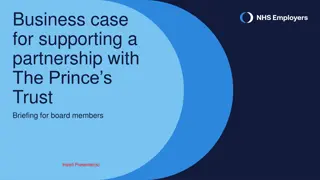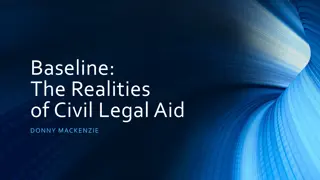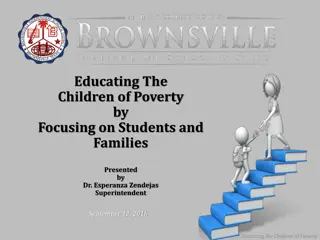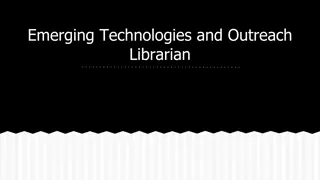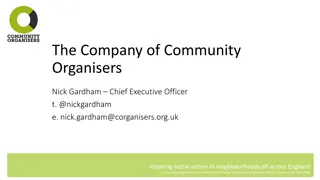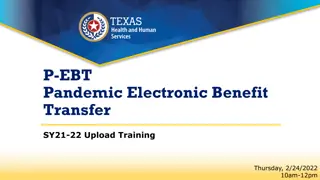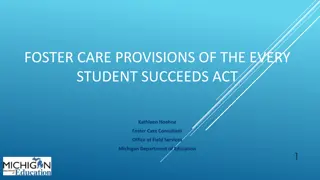Addressing Challenges of Disadvantaged Students Through NCOP Outreach
This research paper delves into the National Collaborative Outreach Programme (NCOP) and its impact on disengaged and disadvantaged students, focusing on parental engagement and wider social issues. Drawing on Bourdieu's cultural capital concept, the study evaluates the effectiveness of NCOP activities in bridging the inheritance gap. Key aspects explored include research context, conceptual framework, and NCOP measurements with practical implications for student engagement with Higher Education.
Download Presentation

Please find below an Image/Link to download the presentation.
The content on the website is provided AS IS for your information and personal use only. It may not be sold, licensed, or shared on other websites without obtaining consent from the author. Download presentation by click this link. If you encounter any issues during the download, it is possible that the publisher has removed the file from their server.
E N D
Presentation Transcript
INSPIRING ASPIRATION: THE MANY CHALLENGES OF NCOP Institute for Social Innovation and Impact Dr Ecem Karlidag-Dennis Dr Meanu Bajwa-Patel Michael Maher BERA 2019
CONTENTS Research Context Conceptual Framework NCOP Measurements Methods Chronification of the problem Why parents are important Practical Impact Concluding Remarks References
RESEARCH CONTEXT Our paper is based on research conducted during the first phase of the National Collaborative Outreach Programme (NCOP) and the experiences of stakeholders: activity providers, teachers, students and activity leaders). The purpose of the study was to evaluate the impact of the outreach conducted in the first phase of NCOP within a particular Local Authority, which was operating without a set Theory of Change In particular we focused on whether the programme does enough to reach out to disengaged, and disadvantaged students and the role of their families. We had two research questions: RQ1: How impactful are the NCOP activities in addressing the issues in the students wider social environments (i.e. parental engagement)? RQ2: What are the limitations and challenges NCOP faces when attempting to address the wider social issues faced by students?
CONCEPTUAL FRAMEWORK For the research we drew on Bourdieu's concept of capitals, especially cultural capital which is an integral part of our habitus (the learned preferences and norms with which we each relate to our social world). Some literature on widening participation (WP) refers to cultural capital as an explanation for why students make their choices in relation to participating in HE. [Habitus] allows familiarity with the dominant culture in society, and education gives students ability to understand and speak the educational language that is key to social mobility (Sullivan, 2002) play the game Disadvantaged communities, seeing little symmetry between their lives and that of the dominant societal institutions (DSIs) may not engage in their children s education. Middle-class families may be more enthusiastic/relate to enrichmentactivities (Ball & Vincent, 2007) Disadvantaged students therefore suffer an inheritancegap where, although they may perform equally to their more advantaged classmates, they are less likely to attend higher education.
NCOP MEASUREMENTS NCOP seeks to bridge this inheritance gap of disadvantaged students through the provision of outreach activities. Disadvantaged students are invited to events which seek to give them a wider understanding of the benefits of Higher Education as well as develop soft skills The programme measures its success through the amount of NCOP-criteria students who are involved in sustained engagements . In practical terms, this means each student must attended a minimum of 2 events that can be categorised into 2 separate HEFCE core activities. The HEFCE core activities are: Information and Guidance, Masterclass, Mentoring, Community Engagement, Teachers, Parental Engagement, Summer Schools, Residential and School Interventions.
METHODS & SAMPLES Qualitative methods: interviews, storyboards, observations Participant Number of the participants Data Collection Labels Teachers 2 Phone Interviews, 20 T1,2 minutes Activity Leaders 1 Interviews, 30-40 A1 minutes Activity Providers 6 Interviews, 30-40 AP1,2,3,4,5,6 minutes NCOP Students 5 Storyboard, 60 minutes NStudent 1,2,3,4,5 Non-NCOP Students 3 Storyboard, 60 minutes NNStudent,1,2,3,4,5 Access to participants: especially students and school staff was tricky Analysis was manual thematic inductive, followed by a Bourdieusian thematic analysis.
FINDINGS: PARENTAL INFLUENCE When interviewed, each of the activity providers saw parental engagement as more pivotal to the students engagement with higher education than any other factor, quotes are indicative: I guess it depends what your upbringing is and what your parents experience is. Because ultimately your parents are the influences, so it depends what they ve been through on your family background (AP1) I think parents are a real big influence on encouraging people to go to university probably need to engage with the parents a little bit more the first thing that they think of about university is they do not look at the benefits, because the benefits are too far away. But they look at the immediate, I m going to be saddled with 55,000 of debt it s the parents that we need to, I suppose, tap into to - not in a propaganda sense but I suppose just to inform them a bit more (AP 2) So,it s about NCOP working really well in those areas to make students think - and parents. So, we ve got to get into parents basically to try and get them to encourage their children to do better and go to university ( ) If your parents are behind you and they ve been to university or they want you to go to university, it s massive, absolutely the biggest barrier (AP 5)
FINDINGS: CHRONIFICATION OF THE PROBLEM The activity providers were very clear about the importance of engaging with parents to improve access to HE. Students upbringing, the cultural and social capital they gain from their parents have a direct effect on their schooling. NCOP activities have the potential to close this gap between middle and working-class families children and support NCOP students to broaden their horizons. Even though the activity providers were aware of the family influence, the only event that was designed for parents was a parents evening held in schools. One reason may be that the NCOP consortium operated without a Theory of Change underpinning the activities they provided. Each HEFCE core activity: Information and Guidance, Masterclass, Mentoring, Community Engagement, Teachers, Parental Engagement, Summer Schools, Residential and School Interventions, being considered equal in impact. Therefore, a NCOP consortium can meet its objectives by providing students with other types of activity, which might be easier to provide, e.g. summer schools, but not necessarily those which might be most impactful, parental engagement A numbers game?
FINDINGS: DISENGAGEMENT OF STUDENTS We can see the impact on the student outreach when comparing activities where students were required to get parental permission to attend an event. Science for Girls , and Science for all , both held off school grounds, saw low NCOP student participation
FINDINGS: DISENGAGEMENT OF STUDENTS Whereas events held at the school, where the impetus was on the schools to ensure NCOP students attended, had much higher NCOP student participation.
DEVELOPING CULTURAL CAPITAL Parental engagement in their child s education goes beyond their attendance at parent-targeted events such as parents evening, or university finance talks. Parental involvement in a young person s education has a significant influence on their attitude towards HE (Gorard et al, 2012) HEFCE report that where young people come from families lacking HE experiences, the family influence is considerable when it comes to their decisions about HE. Reay (2004) suggests accumulation of cultural capital requires pedagogicalaction & investment of time by parents . Events such as campus visits and residential can be beneficial to NCOP targeted students. Our evaluation of an overnight campus visit showed that the experience had a much more positive impact on the NCOP criteria students than their non-NCOP counterparts in improving their understanding of university life, awareness of what programmes were available and information on the financial aspects of higher education However, students seem to be de-incentivised from attending these events due to their social groups, and it is here where parental engagement could encourage them to attend activities outside their comfort zone
SOLUTION? BENEFITS OF A THEORY OF CHANGE SHARED AGREED STATEMENT IDENTIFY HIDDEN ASSUMPTIONS ENGAGE WITH EVIDENCE BASE COMMUNICATE PROJECT AIMS UNDERSTANDING OF AIMS FOCUS ON THE PROCESS OF CHANGE
IN CONCLUSION NCOP engagements, by their nature, are fleeting, with only a handful of engagements with the students spending the majority of their time in their regular social and academic circles. NCOP activity providers recognised that it was the influence of these circles that would have a stronger impact on the students, rather than experience days. Without a Theory of Change, and with all HEFCE activities being considered equal, an NCOP consortium is not incentivised to engage with parents who can be difficult to engage with. A well established Theory of Change, consideration of previous research & weighted activities could help ensure that parental engagement is a priority when it comes to encouraging disadvantaged students to engage with NCOP and aspire to HE. More innovative methods of engaging with parents are also required. And evaluation of impact needs to be more long term if the NCOP is to be more than just another numbersgame .
NCOP PHASE 2 AUG 2019-JULY 2021 Reduce the gap in higher education participation between the most and least represented groups. Reduce the gap in higher education participation between the most and least represented groups. Support young people to make well-informed decisions about their future education. Support effective and impactful local collaboration by higher education providers working together with schools, colleges, employers and other partners. Contribute to a stronger evidence base around 'what works' in higher education outreach and strengthen evaluation practice in the sector. Onwards and upwards ture education. Support effective and impactful local collaboration by higher education providers working together with schools, colleges, employers and other partners.
SELECT REFERENCES Vincent, C. and Ball, S. J. (2007) `MakingUp the Middle-Class Child: Families, Activities and Class Dispositions , Sociology, 41(6), pp. 1061 1077. Edgerton, J. D., & Roberts, L. W. (2014). Cultural capital or habitus? Bourdieu and beyond in the explanation of enduring educational inequality . School Field, 12(2), 193-220. Reay, D. (2004). Education and cultural capital: the implications of changing trends in education policies . Cultural Trends. 13, 73-86. Sullivan, A. (2002). Bourdieu and Education: How Useful is Bourdieu's Theory for Researchers? . Netherlands Journal Of Social Sciences. 38, 144-166.
ANY QUESTIONS? meanu.bajwa-patel@northampton.ac.uk michael.maher@northampton.ac.uk
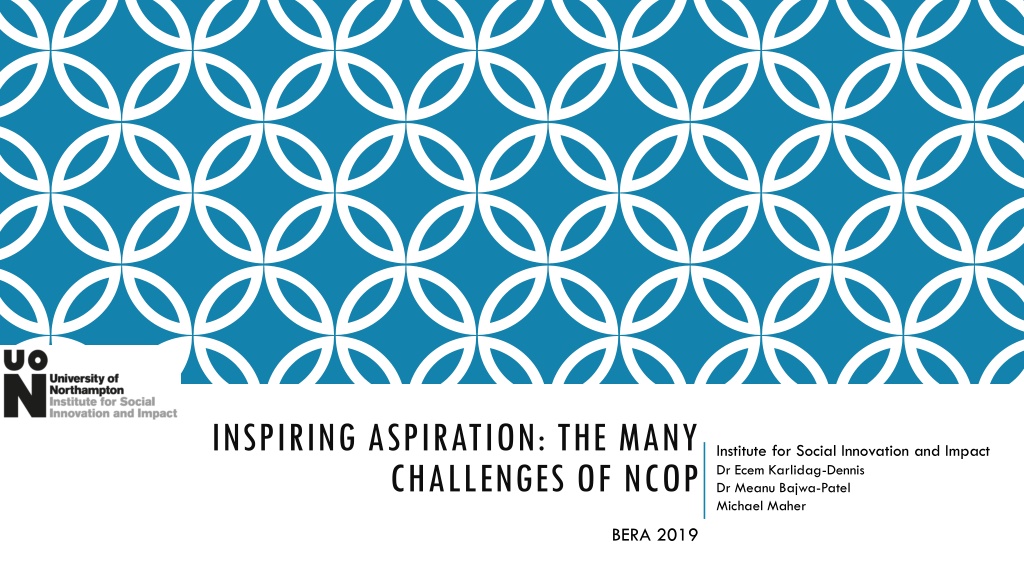

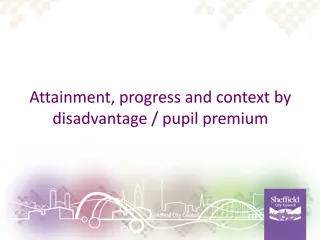
![Stakeholders' Responses to National Health Insurance Bill [B.11B-2019]: Overview](/thumb/69945/stakeholders-responses-to-national-health-insurance-bill-b-11b-2019-overview.jpg)
